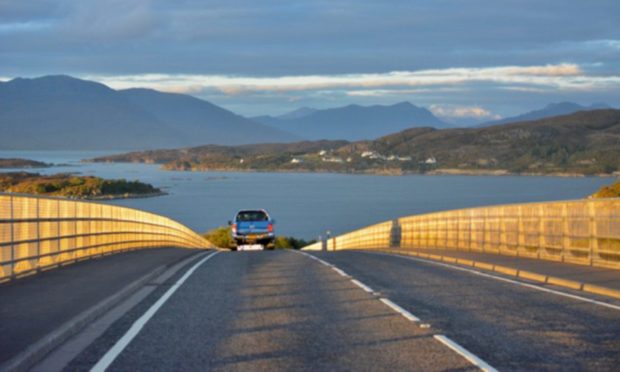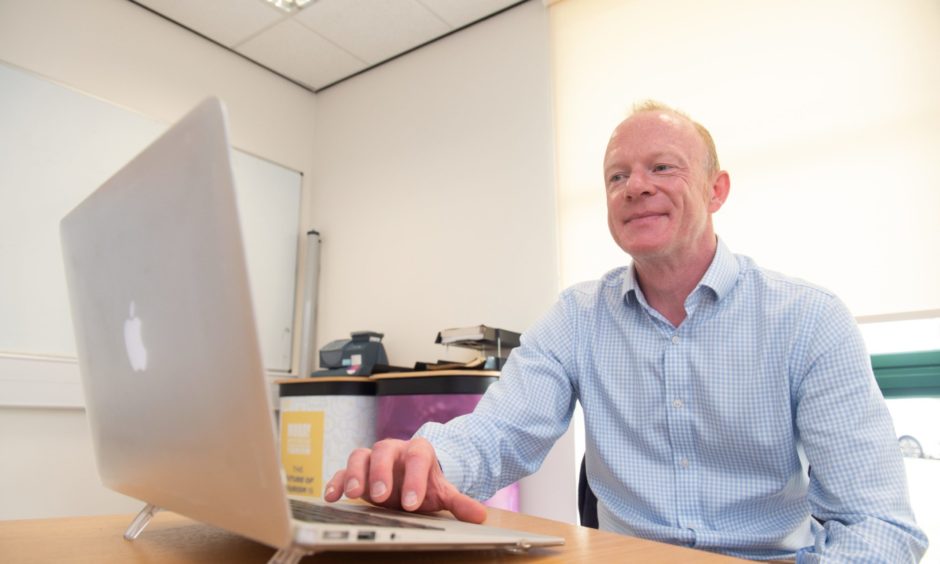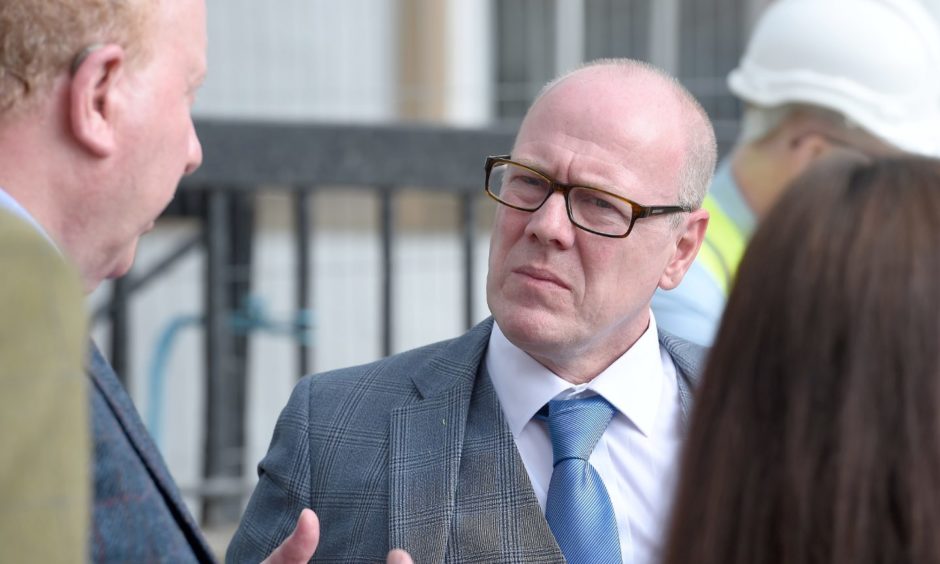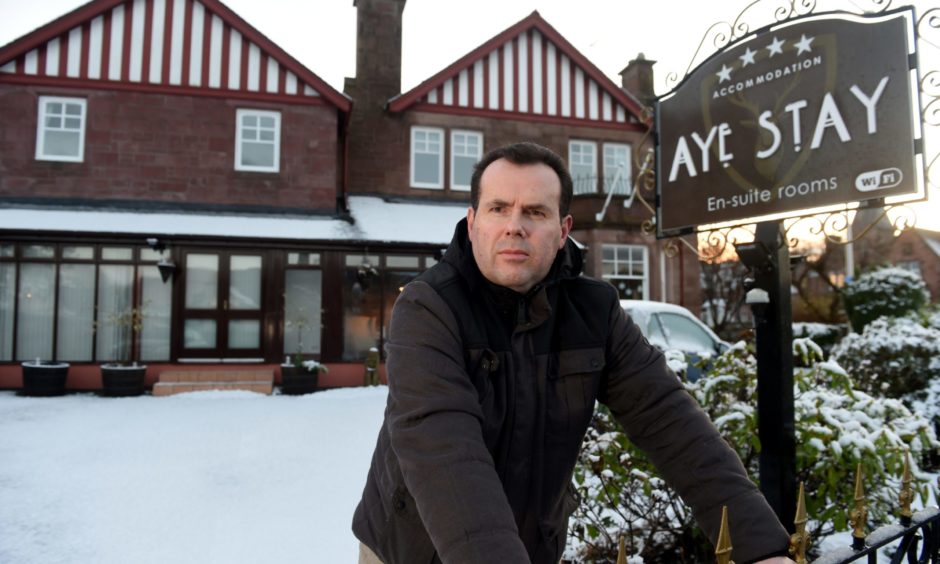Plans for regulations to tackle short-term lets are “damaging and misguided” and will “undoubtedly” lead to the closure of B&Bs, say tourism bosses in the north.
The Scottish Parliament’s local government committee voted in favour of proposals to introduce a licensing system for short-term lets on Wednesday, despite claims from those in the industry that it is “using a sledgehammer to crack a nut”.
The scheme, which will now go to full parliament for a vote, would see short-term lets subject to annual licensing and monitoring fees, guest arrival and departure curfews, occupancy limits and regular property inspections.
Appearing at the committee, Housing Minister Kevin Stewart said the regime would not be “onerous” for operators, who would be required to pay in the range of £223 to £337 for a three-year licence.
However, the Scottish B&B Association claims these figures are “misleading” and instead estimates costs could reach up to £1,000, depending on individual local authorities, who will be responsible for running the scheme.
Laurie Piper, chief executive of Visit Moray Speyside, said he was “disappointed” to see the local government committee vote four to three in favour of the “damaging and misguided regulations”.
‘The wrong solution to the wrong problem’
He added: “We absolutely understand and endorse the need for appropriate licensing and controls but, as we’ve said before, these specific proposals are the wrong solution to the wrong problem and will undoubtedly see a reduction in number of self-catering and B&B operators in our area.
“We can only hope that when the full parliament considers them some common sense might prevail.”
Mr Stewart said the Scottish Government has listened to concerns from the tourism industry, delaying the implementation of the plans until April 2023.
This would ensure the government is not “placing additional requirements on hosts in the middle of the Covid-19 pandemic“, he added.
The housing minister claimed that in “certain parts of the country” there has been a problems with anti-social behaviour in short-term lets, adding he had heard some “horror stories”.
However, the SNP politician denied it is an “Edinburgh-only problem”, where residents have suffered due to an increase in Airbnb properties, and said an independent study has shown there were “some tensions getting the balance right between the economy and the community” in areas such as Skye and East Fife.
‘It’s using a sledgehammer to crack a nut’
Inverness guest house operator David Shayer runs Aye Stay, a 10-room guest house on the city’s Bishop Road.
Although guest houses are exempt from the regulations, the business owner says other B&B operators have told him they fear having to close if they face more costs.
He said: “It’s using a sledgehammer to crack a nut is the phrase that’s been used of a central belt issue.
“A lot of these small micro-businesses are going to close.
“They contribute a lot of money to the economy and they also employ people, cleaners, joiners and other tradesmen, so it’s going to have knock-on effects.”
This legislation has been badly drafted and needed to be sorted out before it was voted on today.”
Inverness & District B&B Association
‘Already demoralised’
Daniel Mackenzie-Winters, chairman of the Inverness & District B&B Association, said he is “very disappointed” by the committee’s recommendation, which he claims had taken place “without proper consultation of the impact on bona fide B&Bs”.
He added: “This legislation has been badly drafted and needed to be sorted out before it was voted on today.
“It is the last thing that accommodation businesses need right now when we are already facing so much uncertainty and financial hardship due to Covid.
“It risks forcing small operators out of business when they are already demoralised.
“B&Bs already have to comply with numerous regulations and this seems like completely the wrong time to be tying up legitimate businesses in red tape which will also have potential financial implications.”
B&B regulations ‘very unfortunately handled’
David Weston, chairman of the Scottish B&B Association, said the regulations are “disproportionate” for tiny B&Bs in more rural areas who “really aren’t the cause of the problems they’re trying to solve with this”.
He added he understood the committee had received almost 300 submissions from B&B owners, with “almost all against” the proposals as they are.
He said: “We’re not against regulations and our members comply with rules and regulations but we’re keen to see everyone comply with the same regulations and we thought that could be achieved by a simple low-cost or no-cost regulation scheme rather than a licensing scheme, and licensing is more onerous and unwieldy.”
We just think this whole thing has been very unfortunately handled.”
Chairman of the Scottish B&B Association David Weston
Several committee members expressed their disappointment that they did not get to see a draft of the regulations in advance, in order to make any amendments.
The housing minister told MSPs that he recognised the impact on B&Bs and would “look to see if there are any changes to the legislation that are required” in the next parliament.
Mr Weston described it as “an extraordinary thing to do for a government, to say you must pass this as it’s written on the basis that we might change it later at a future stage rather than say let’s amend the wording to get it right”.
He added: “We just think this whole thing has been very unfortunately handled.”



